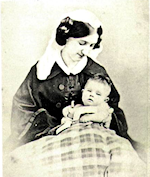
September 2.—A procession of several hundred stout negro men, members of the “domestic institution,” marched through the streets of Memphis, Tenn., in military order, under the command of Confederate officers. They were armed and equipped with shovels, axes, blankets, etc. A merrier set never were seen. They were brimful of patriotism, shouting for Jeff. Davis and singing war-songs, and each looked as if he only wanted the privilege of shooting an abolitionist. The arms of these colored warriors were rather mysterious. Could it be that those gleaming axes were intended to drive into the thick skulls of abolitionists the truth, to which they are wilfully blind, that their interference in behalf of Southern slaves is neither appreciated nor desired; or that these shovels were intended to dig trenches for the interment of their carcasses? It may be that the shovels are to be used in digging ditches, throwing up breastworks, or the construction of masked batteries, these abominations to every abolition Paul Pry who is so unlucky as to stumble upon them.—Memphis Avalanche, September 3.
—To-day six hundred rebels under Gen. Rains approached Fort Scott and seized eighty mules belonging to the United States, killing the teamster. A messenger was despatched to Montgomery, who had five hundred men. He pursued Rains eleven miles, killing several of his men, when, coming on the main body of the enemy, a battle commenced, the rebels having cannon, and Montgomery one howitzer only. The fight lasted two hours, when Montgomery slowly retreated, keeping up a running fight until nightfall.—N. Y. World, September 17.
— Jeff. Thompson at Camp Hunter, Mo., issued a proclamation, in which, as a retaliative measure for Fremont’s proclamation, he threatened, for every Southern soldier and citizen executed, to hang, draw, and quarter a minion of Abraham Lincoln.—(Doc. 24.)
—The Louisville (Ky.) Journal of this morning, strongly condemns the proclamation of Gen. Fremont, and urges the State Legislature by its action to avoid the contingency of any such action here. It says the Legislature must now decide whether it will organize a body of local soldiery for State purposes, strong enough to enforce the obligations of loyal neutrality, or whether it will suffer things to go on as they have been doing, with a prospect of lapsing at no distant day into the condition which, in so brief a time, has brought on the sway of martial law in Missouri.
— The Massachusetts Thirteenth regiment surrounded the Charleston “Home Guards” Cavalry about two o’clock this afternoon at Beher’s Mill, two and a half miles above Harper’s Ferry, Va., and took twenty prisoners, having first killed three and wounded five of the secessionists. The Massachusetts boys brought them in, singing “Gay and Happy.”— National Intelligencer, September 3.
—Senator Andrew Johnson, of Tennessee, at Newport, Ky., delivered an able and patriotic speech, at a full and enthusiastic Union meeting.—Cincinnati Commercial, September 2.
—The secessionists encamped at Worthington, in Marion County, Va., four hundred in number, were attacked by Col. Crosman, of General Kelley’s staff, with two companies of United States troops, a little after daylight this morning; but the secessionists were too strong for him, and he was obliged to fall back with a loss of two men.—Philadelphia Inquirer, September 3.
—The United States frigate Minnesota, having on beard the rebel prisoners taken at Forts Hatteras and Clark, North Carolina, arrived at New York.
—The barks Sumter and Moneynick, principally owned in Charleston, S. C., were seized by the surveyor of Boston to-day, under the confiscation act.—N. Y. World, September 3.











